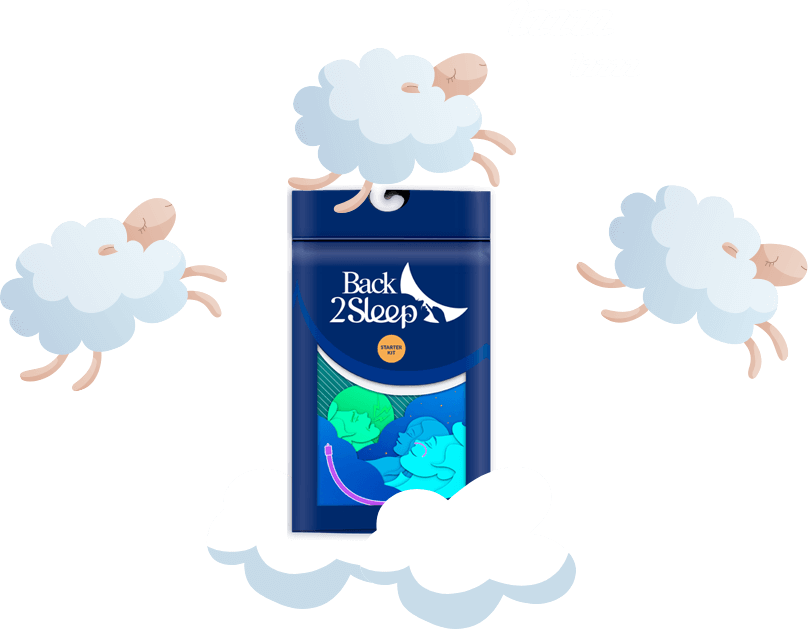The results of numerous research studies on biological rhythms chronobiology (desynchronization or synchronization), sleep deprivation (drowsiness, REM sleep), have established a link between circadian rhythm disorders and certain diseases such as Alzheimer's or bipolarity.
Circadian rhythms are the biochemical, biological, behavioral and physiological cycles that occur in our bodies over a 24-hour period.
Variations in body temperature, blood circulation, urine production, hormone production, eating rhythms, nycthemeral rhythms or even the rhythm of cognitive functions are regulated by well-defined cycles.

Other examples include daily fluctuations in body temperature, secretion of hormones such as cortisol, and alertness. These rhythms are mainly regulated by the suprachiasmatic nucleus of the hypothalamus in the brain.
What is the link between our circadian rhythms and our sleep?
Our bodies are programmed to live during the day and sleep at night. The light-dark cycle links our environment to our biological clock. Our internal rhythm is therefore mainly regulated by this factor. Other factors may come into play, such as work schedules, leisure activities, jet lag, health problems (arterial, hormonal, obesity and many others linked to the human body).
It is not uncommon to observe sleep disorders linked to disruption of circadian rhythms.
But most importantly, this internal clock regulates the state of activity(wakefulness) and the state of sleep. Certain cells in the retina capture sunlight and enable us to be in phase with the earth's cycle: sleeping at night and awake during the day. Problems arise when your internal clock no longer matches the sun's cycle (insomnia).

Phase delay and phase advance syndromes:
Phase delay is a sleep disorder that results in late onset of sleep and delayed awakening.
As this is incompatible with daily life, people suffering from this syndrome will still have to get up early to establish a biological rhythm and ensure a "day and night" rhythm in order to regain a natural rhythm
This will lead to sleep deprivation, which can result in concentration difficulties, relationship problems and attention problems that can lead to accidents.
Phase advance, on the other hand, characterizes people who go to bed abnormally early. Having difficulty staying awake between 6 and 9 p.m., sufferers wake up very early in the morning and feel great.
Is night work compatible?
It's important to know that working at night, or shifting shifts (in a factory, for example) can alter your circadian cycle.
No longer in phase with the earth's rhythm, your biological clock is in a sense " out of sync" . Its symptoms are much the same as those of phase delay.
They can affect the quality of your night work, cause inconvenience and jeopardize your safety. When you go on vacation, time differences can also cause circadian rhythm disturbances. There are solutions for all these situations.
Every living creature, like mammals, follows the same rhythm: when we work at night and sleep during the day, the day-night cycle is broken, affecting your social and sleeping rhythms and increasing the risk of heart attacks (cardiovascular problems) and brain damage.
Circadian rhythm disturbances linked to bipolarity?
Numerous studies have been carried out and published in the journal Biological Psychiatry to establish a link between the alteration of these biological rhythms and the onset of bipolar disorders.
The somatostatin is a neurotransmitter that moderates anxiety and depression. It has been shown that a lack of this hormone in sufficient quantities in the amygdala gland could promote the onset of bipolar disorder.

This absence of somatostatin is thought to be due to a dysfunction of circadian rhythms. Excessive anxiety in bipolar sufferers could be due to poor regulation of somatostatin during sleep.
Solutions exist and have been proven by studies: the importance of a regular routine, whether for going to bed, falling asleep or during the day, gives your life a rhythm and enables you to familiarize yourself in greater detail with your daily activities.
Circadian rhythms of hormones
Many physiological elements are subject to endogenous variationson a daily basis. These cycles have an impact on our body's production of hormones (insulin, cortisol, protein, serotonin and others).
Melatonin, the sleep hormone, is virtually absent from our bodies during the day. On the other hand, the closer we get to nightfall, the more it is secreted. It peaks at night, between 2 and 3 a.m.

Cortisol, known primarily for maintaining internal metabolic processes, is present in high quantities on waking. It stimulates the body and helps it get going.
The growth hormone somatotropin is produced at the beginning of the night, during the deep slow wave sleep phase. In children, it is essential for muscle and bone development. It acts on an adult metabolism by helping it to burn fat and by contributing to protein synthesis.
Endogenous circadian rhythms are therefore of paramount importance to our physical and psychological health, enabling the world to move at the same pace and adapt to the rhythm according to the period to avoid a profound, cyclical shift throughout the year.
Correlation between circadian rhythm disorders and Alzheimer's disease
People suffering from Alzheimer's disease very often present a circadian rhythm malfunction, and more specifically an alteration in the alternation of sleep/wake phases. The greater the patient's cognitive impairment, the greater the disruption to this rhythm. For example, the disturbed sleep-wake rhythm in blind people.
The most common symptoms are frequent night-time awakenings, which can even lead to sleepwalking sleepwalking and a feeling of falling asleep during the day. A recently published study has shown that these circadian disturbances lead to a progression of amyloid plaques in the brain. These are directly linked to Alzheimer's disease.
Normally, amyloid levels fall during sleep. Older studies have shown that these levels rise when circadian rhythms are disrupted.
The presence of amyloid plaques in the brain is one of the triggers of Alzheimer's disease.

- Choosing a selection results in a full page refresh.
- Opens in a new window.







